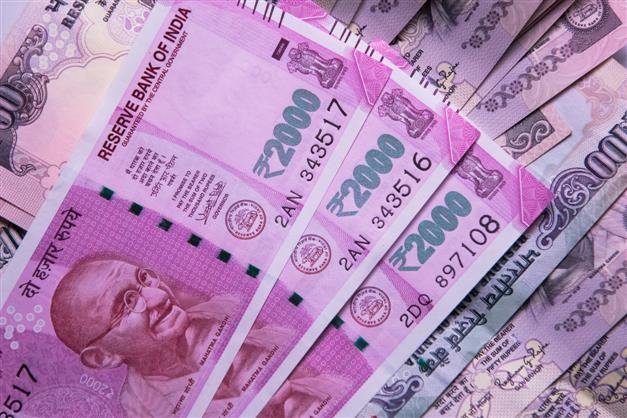The State Bank of India (SBI) has issued a guideline to all its branches, putting to rest speculations about the exchange or deposit process for ₹2000 notes. The guideline states that customers can exchange or deposit ₹2000 notes without the need for a requisition slip. It reiterates that up to ₹20,000 worth of ₹2000 notes can be exchanged or deposited at a time.
The clarification comes in response to alleged misinformation circulating on social media, claiming that a form and identity documents such as an Aadhaar card would be required to exchange the banned notes.
Government sources have stated that individuals can exchange ₹2000 notes multiple times in a day, up to a total value of ₹20,000. People can stand in a queue, complete the exchange, and then return to stand in the same row to exchange additional notes. There is no restriction on rejoining the line after exchanging or depositing notes once.
The Reserve Bank of India (RBI) announced on Friday that it will withdraw ₹2000 notes from circulation, allowing people to exchange or deposit them in their bank accounts by September 30. The RBI’s 19 regional offices and other banks will begin accepting ₹2000 notes for exchange with lower denomination ones starting May 23. The notes will remain legal tender, as confirmed by the RBI.
The RBI stated that the withdrawal is part of its “Clean Note Policy.” If necessary, the RBI may extend the deadline beyond September 30. However, even after the current deadline, any ₹2,000 note in possession will continue to be valid as legal tender.
It is not mandatory for a person to be a customer of the bank to exchange the soon-to-be-discontinued currency. Non-account holders can exchange ₹2000 banknotes up to a limit of ₹20,000 at any bank branch.
The RBI emphasized that no fee should be charged to avail of the exchange facility. Additionally, banks have been instructed to make arrangements to minimize inconvenience for senior citizens and individuals with disabilities who wish to exchange or deposit ₹2,000 banknotes.
The RBI noted that approximately 89% of ₹2000 denomination banknotes were issued before March 2017 and are reaching the end of their estimated lifespan of four to five years. As of March 31, 2023, the total value of these banknotes in circulation has declined to ₹3.62 lakh crore, constituting only 10.8% of the notes in circulation.
The central bank clarified that ₹2000 notes are not commonly used for transactions. This is not the first time the RBI has withdrawn notes from circulation, as a similar measure was undertaken in 2013-2014.
